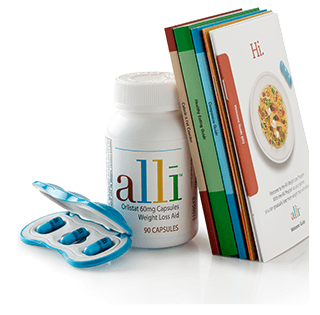Remember Alli? It’s the only FDA-approved weight loss supplement, and was voluntarily recalled from the shelves last year due to tampering (there were mysteriously all sorts of different pills in their bottles). Now, Alli is back on the market, so they’ll be popping up again at your local pharmacy—and maybe even in the women’s locker room.
What should you know about this product—besides that it can’t compete with kale salads and regular exercise for a healthy lifestyle?
 What is it—and how does it work? The active ingredient in the supplement is orlistat, which is designed to keep your body from absorbing the fats you eat.
What is it—and how does it work? The active ingredient in the supplement is orlistat, which is designed to keep your body from absorbing the fats you eat.
The theory is that without consuming the fat, you’re not consuming the calories or gaining the weight. One of the hitches, though, is that Alli doesn’t discriminate between the good and bad fats, so even if you eat healthfully and take it to speed up weight loss, as recommended, you’re not getting all of the benefits of a balanced diet. Alli stops the absorption of all fats, from French fries to wild salmon.
Healthy fats are crucial to a balanced diet (doctors have been trying to explain that for years!) The good ones actually help your immune system, nerves, heart, bones, hormones, and skin.
It’s not the best long-term solution. While clinical trials involving orlistat show it can help people lose weight, the old-fashioned method might even work just as well. While Alli might help someone who has 100 pounds to lose - in order to achieve sustainable weight loss, you need to change your behavior, and a supplement can’t help you with that.
Getting healthier should be via things you can stick with—like whipping up veggie smoothies, or meeting a friend for a spin class a few times a week. A supplement doesn’t address the emotional or behavioral aspects of eating; it’s a short term approach.
~Thanks to Molly Gallagher
No comments:
Post a Comment